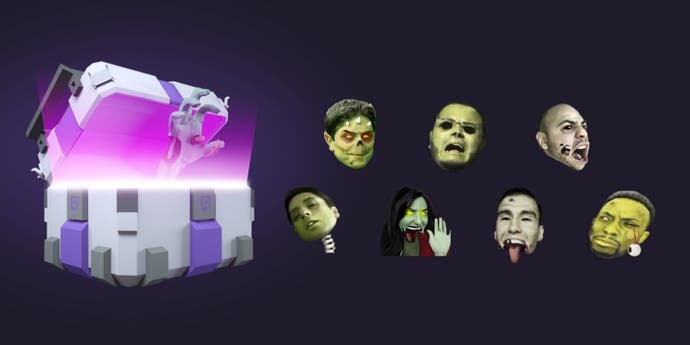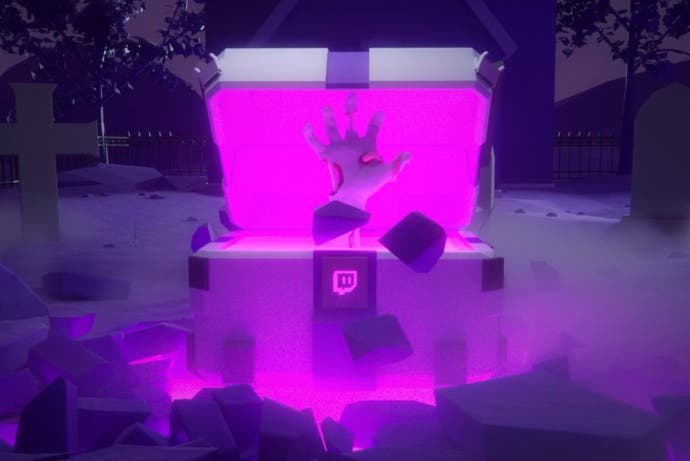Twitch Halloween loot crates contain temporary emotes
Which resemble Japan's illegal Kompu Gacha.
Twitch Halloween crates might be more of a trick than a treat, containing temporary rather than permanent emotes.
The latest seasonal Twitch crate contains random temporary emotes. Collecting all six emotes in the set unlocks a permanent "Zombie Lord Kappa" emote.
Crates are unlocked by "cheering" with at least 250 Bits in one single cheer, or players have the option to outright buy the permanent emote using 5,000 Bits.

Bits are Twitch virtual currency which are bought with real-world money and are used to "tip" streamers. Spending Bits triggers an animated emoticon in the Twitch chat - the more you spend the bigger and better the animation.
250 Bits, enough to be rewarded one Halloween crate, costs $3.50 (roughly £2.66) but even this does not guarantee players will receive one of the temporary emotes needed for their collection. Many cheers could be required to complete the set. Alternatively you can buy the permanent emote outright for 5000 Bits which costs upwards of $70 without a discount
This system strongly resembles Kompu Gacha, also known as Complete Gacha, a practice which was banned in Japan in 2012 due to the belief it was inciting gambling, particularly amongst children.

Kompu Gacha games offered a grand-prize for players who completed a collection of specific items. This encouraged players to spend more on randomised gacha draws, but with a low probability of ever getting the items they needed.
Twitch crates, first introduced back in April, offer those who bought them random rewards (sometimes including emotes). But this is the first time the crates have contained temporary emotes or used the Kompu Gacha mechanic and some fans are not happy.
One Redditor said, "This looks like satire and yet it's real" while another cut to the chase saying, "Maybe if we ALL start referring to them as 'shit boxes', they will eventually go away".
The move is a bold one considering the current debate surrounding loot boxes, in-game gambling and microtransactions.

